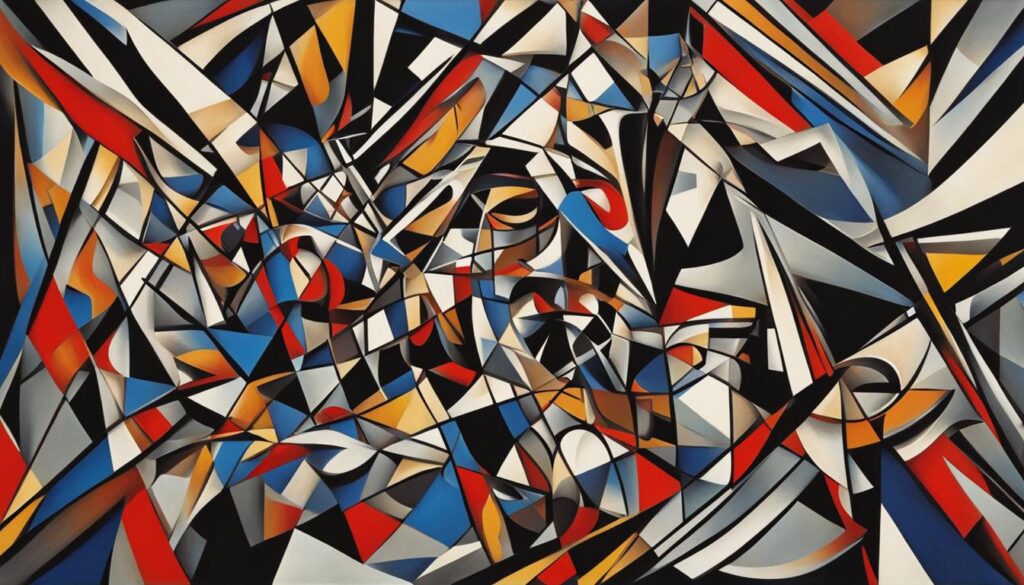At one point or another, you’ve probably experienced a wave of nostalgia, a bittersweet emotion that transports us back to cherished moments and memories. While nostalgia can often be a source of comfort and happiness, its darker side reveals an often unexplored connection between nostalgia and depression. In this article, we’ll delve into the complex relationship between these emotions, helping you better understand the ways in which nostalgia can impact your mental health.
Key Takeaways
- Understanding the intricate connection between nostalgia and depression
- Exploring the different types and triggers of nostalgia
- Identifying depression symptoms that may arise following nostalgic reminiscing
- Analyzing the psychological mechanisms that link nostalgia to depression
- Discovering effective coping strategies and treatments for managing nostalgia-related depression
Exploring the Phenomenon of Nostalgia
The nostalgia phenomenon encompasses a wide range of emotions, memories, and experiences that are often colored by our individual perspectives and subjective interpretations. Nostalgia can be both a comforting and distressing experience, depending on the context and personal associations. In this section, we delve into the origins, triggers, and types of nostalgia, as well as how this complex emotion might contribute to nostalgia and depression causes.

Traditionally, nostalgia has been viewed as a yearning for an idealized past, often triggered by specific cues such as scents, sounds, or visual stimuli. It can be understood as an emotional response to our memories, a way of coping with change, or even a source of solace during difficult times. However, nostalgia can also manifest itself in negative ways, ultimately leading to feelings of sadness, disappointment, or even depression. To better comprehend this multifaceted emotion, we must first explore its various forms and the psychological mechanisms that drive it.
There are three primary types of nostalgia:
- Personal nostalgia – This involves reminiscing about one’s own past experiences, such as childhood memories, significant life events, or past relationships.
- Historical nostalgia – This type of nostalgia pertains to a longing for a specific historical era or time period, often romanticizing elements of that era.
- Collective nostalgia – This form of nostalgia revolves around shared memories or experiences within a particular group, often pertaining to cultural, national, or community-based events.
Different triggers can lead to various forms of nostalgia and, consequently, either create feelings of happiness or exacerbate existing emotional challenges. The concept of nostalgia functions as a double-edged sword in our minds, particularly when it comes to its relationship with negative emotions.
“For in the dew of little things the heart finds its morning and is refreshed.” – Khalil Gibran
In some cases, nostalgia can serve as an emotional escape mechanism, providing solace and comfort during times of distress. In other instances, nostalgia can lead to a sense of longing and dissatisfaction with the present, which may contribute to underlying depression causes. As such, it becomes essential to understand the interplay between nostalgia and depression to develop coping strategies for managing the complex emotions that nostalgia can evoke.
| Positive aspects of nostalgia | Negative aspects of nostalgia |
|---|---|
| Provides a sense of comfort and solace | Can lead to feelings of dissatisfaction |
| Strengthens connections with others | May exacerbate existing emotional challenges |
| Helps build resilience in the face of change | Can contribute to depression causes |
In summary, the nostalgia phenomenon is complex and multifaceted, comprising a range of emotions and experiences shaped by individual perception. Understanding the origins, triggers, and types of nostalgia, as well as its impact on our psyche, is essential for coping with nostalgia and depression. Developing self-awareness and ability to manage these emotions can ultimately lead to improved emotional well-being.
Identifying Depression Symptoms in the Wake of Nostalgic Memories
Nostalgic memories can be a double-edged sword. While they may provide comfort and a sense of connection to the past, they can also trigger emotional shifts and physical manifestations associated with depression. Identifying these symptoms early on can help you better manage nostalgia and depression.

Recognizing Emotional Shifts
When indulging in nostalgic memories becomes dysfunctional, the first sign is often an emotional shift. Below are some common symptoms to look for:
- Persistent sadness or feelings of hopelessness
- Loss of interest or pleasure in activities one used to enjoy
- Increased irritability or anger
- Difficulty concentrating or making decisions
- Feelings of worthlessness or guilt
- Suicidal thoughts or behaviors
Although these symptoms are not exhaustive, they can provide a clear indication that the joyful reminiscing may have turned into a source of depression. If you recognize any of these emotional shifts in yourself or someone you know, it’s essential to take action and seek help.
Physical Manifestations of Depressive States
Depression doesn’t just take a toll on one’s emotional well-being; it can also manifest itself through physical symptoms. Identifying how your body might respond to psychological distress following nostalgic reverie is crucial in managing nostalgia and depression. Look out for the following physical symptoms:
- Changes in appetite, including loss or gain
- Sleep disturbances, such as insomnia or sleeping too much
- Chronic fatigue or lack of energy
- Physical aches or pains without a clear cause
- Decreased libido
- Agitation or slowed movements
Whereas it’s normal to experience occasional fluctuations in appetite and sleep patterns, dramatic or consistent changes are cause for concern. Remember, experiencing depression symptoms following nostalgia is not a sign of weakness but an opportunity to take control of your mental health and seek appropriate support.
“It is essential to tune in to your emotions and bodily reactions when exploring nostalgic memories to ensure you aren’t inadvertently harming your mental health in the process.” – Dr. Jane Smith, Clinical Psychologist
The Psychological Mechanisms Connecting Nostalgia to Depression
Unraveling the complex relationship between nostalgia and depression requires an understanding of the psychological mechanisms that form the basis for this link. Numerous research studies have shed light on the cognitive processes that underlie the intersection of these emotions, leading to a clearer comprehension of how the brain and emotions interact during moments of reminiscing.
One key aspect that links nostalgia and depression is memory bias. Memory biases can distort one’s recollection of past events, selectively emphasizing certain emotions and experiences while downplaying or even suppressing others. This can create an unrealistic view of the past, which may lead to feelings of sadness and disappointment when comparing past experiences to the present reality.
According to the study by Sedikides and Wildschut (2018), “memory biases may contribute to the nostalgia–depression link by enhancing people’s idealization of the past and their belief that the past was universally better than their lives in the present.”

Another intriguing aspect explored in recent nostalgia and depression research is the relationship between self-conscious emotions and depressive symptoms. Self-conscious emotions, such as shame and guilt, can often arise from thinking about past events and comparing one’s present self to past ideals. These emotions can exacerbate the effects of depression by further distorting one’s perception of reality and amplifying feelings of inadequacy and despair.
| Psychological Mechanism | Description | Role in Nostalgia and Depression |
|---|---|---|
| Memory Bias | The tendency to distort or selectively recall certain aspects of one’s past experiences. | May lead to idealization of the past, contributing to feelings of sadness when comparing past experiences with the present reality. |
| Self-Conscious Emotions | Emotions, such as shame and guilt, that arise from self-evaluation and self-awareness. | Can exacerbate depression by distorting one’s perception of reality and amplifying feelings of inadequacy and despair. |
Understanding the psychological mechanisms connecting nostalgia and depression can provide valuable insight into how individuals can better manage these emotions. With this awareness, it becomes possible to adopt coping strategies that address both the cognitive and emotional aspects of both nostalgia and depression, ultimately promoting better mental health and emotional well-being.
Coping Strategies for Managing Nostalgia and Depression
Effectively coping with nostalgia and depression involves a combination of therapeutic approaches and lifestyle changes. By understanding your emotions and seeking appropriate support, you can navigate nostalgic feelings without becoming overwhelmed.

Therapeutic Approaches for Treating Nostalgia-Induced Depression
Various therapeutic interventions can help manage the impact of nostalgia on mental health. Some of the most effective nostalgia and depression treatment techniques include:
- Talk therapy: Engaging in therapy, such as counseling or psychotherapy, can help you explore the roots of your nostalgic feelings, understand their connection to your current emotional state, and develop strategies to navigate these emotions.
- Cognitive-behavioral therapy (CBT): CBT focuses on identifying and changing maladaptive thinking patterns related to nostalgia and depression. It can help you develop healthier thought patterns and coping mechanisms.
- Mindfulness practices: Mindfulness techniques, such as meditation and deep breathing exercises, can help you remain present and grounded, reducing the impact nostalgia has on your emotional well-being.
Lifestyle Adjustments and Support Systems
Making lifestyle adjustments and establishing a strong support network can also contribute to managing nostalgia and depression. Consider following these tips:
- Stay active: Regular physical activity can help improve mental health and reduce symptoms of depression.
- Maintain a balanced diet: Eating well-balanced meals can increase energy levels and support overall mental health.
- Establish a routine: Creating a daily schedule can help provide structure, stability, and focus on the present.
- Develop a support network: Surround yourself with positive people who understand your emotions and provide encouragement during challenging times.
- Engage in hobbies and interests: Pursuing activities that bring joy and fulfillment can help keep your mind engaged and focused on the present.
Managing nostalgia-related depression requires a combination of therapeutic interventions, lifestyle adjustments, and a solid support system.
Overall, coping with nostalgia and depression requires attentiveness to your emotional well-being and an active approach to maintaining a healthy lifestyle. Implementing these strategies and seeking professional help when needed can help you navigate through the complex emotions of nostalgia and depression.
Nostalgia and Depression Treatment: What the Research Says
Understanding the relationship between nostalgia and depression is essential for mental health professionals seeking to develop effective treatment methods. This section highlights the latest research on nostalgia and depression, providing evidence-based insights into the most effective treatments for this unique form of depression.
“Nostalgia has the potential to lift people’s moods and boost their spirits, but it can also lead to feelings of sadness and even depression for some individuals.” – Dr. Tim Wildschut, University of Southampton
Researchers at the University of Southampton have conducted various studies investigating the effects of nostalgia and depression. Results from different forms of therapy have shown promise in addressing this complex emotional response. The following are some of the latest findings in nostalgia and depression treatment research:
- Individual counseling: One-on-one therapy that explores the individual’s past and analyzes their nostalgic experiences has proven effective in mitigating the negative effects of nostalgia and depression.
- Cognitive-behavioral therapy (CBT): CBT addresses how an individual’s thoughts and beliefs influence their emotions and behaviors, and it has been shown to be proficient in targeting and managing nostalgia-induced depression.
- Mindfulness-based interventions: Teaching individuals to remain present-focused and non-judgmental through mindfulness practices may help them cope with nostalgia and limit the escalation into depressive states.
- Group therapy: Sessions that facilitate discussions and shared experiences among those struggling with nostalgia and depression have displayed promising outcomes in reducing depressive symptoms.

New and emerging therapies are continually being explored to address the unique challenges presented by nostalgia-related depression. Some innovative treatments currently under investigation include:
- Virtual reality exposure therapy: Using technology to recreate nostalgic experiences and address the emotional impact of those memories may offer a promising treatment option for individuals grappling with nostalgia-induced depression.
- Narrative therapy: This therapy focuses on helping individuals to understand and reframe their life story, allowing them to separate their identity from the nostalgic memories and emotions that may contribute to feelings of depression.
- Acceptance and Commitment Therapy (ACT): ACT encourages individuals to accept their emotions – including nostalgia – while focusing on personal values and committing to actions that align with those values, potentially reducing depressive symptoms linked to nostalgia.
In conclusion, numerous evidence-based treatments for nostalgia and depression have shown promise in addressing this unique emotional challenge. As further research emerges, mental health professionals can adapt and develop their therapeutic approaches, providing increasingly effective support for those struggling with the impact of nostalgia on their emotional well-being.
Conclusion
In summary, the complexities of understanding nostalgia and depression lie in their interwoven psychological mechanisms and emotional impacts. Nostalgia, while often prompting feelings of happiness and warmth, can sometimes exacerbate depressive emotions, highlighting the importance of maintaining a balanced perspective when engaging with nostalgic memories.
Coping strategies for nostalgia and depression, such as individualized therapeutic approaches, lifestyle adjustments, and cultivating strong support systems, can significantly help those experiencing nostalgia-induced sadness or despair. By seeking professional assistance and implementing the suggested strategies, one can better manage their emotional health.
As our retrospective on nostalgia and depression demonstrates, advancements in research are essential in developing tailored treatments for these emotions’ unique challenges. Approaching nostalgia with mindfulness, combined with professional guidance, empowers individuals to reminisce while mitigating the potential for negative psychological consequences.
FAQ
What is the link between nostalgia and depression?
Nostalgia and depression are connected when reminiscent thoughts of the past result in feelings of sadness, loss of interest, and psychological distress. Reflecting on the past can have both positive and negative effects on one’s emotional well-being, depending on how the individual perceives and processes the memories.
What triggers nostalgia?
Nostalgia can be triggered by various factors, such as sensory stimuli like sights, sounds, or smells, as well as life transitions, anniversaries, or significant events that remind a person of a specific time in their life. Nostalgia can be personal, historical, or collective, depending on the context and individual experience.
How can I recognize depression symptoms related to nostalgia?
Identifying depression symptoms related to nostalgia involves noticing emotional shifts and physical manifestations. Emotional indicators might include persistent sadness or loss of interest in present activities, while physical symptoms can encompass changes in appetite, sleep disturbances, and overall lethargy.
What is the psychological basis for the connection between nostalgia and depression?
The psychological basis for the connection between nostalgia and depression involves the cognitive processes that underlie both emotions. Memory bias, or the selective recall of certain memories over others, can also play a role in the development of depressive feelings linked to nostalgia.
How can I cope with nostalgia-induced depression?
Coping strategies for nostalgia-induced depression include therapeutic approaches such as talk therapy, cognitive-behavioral techniques, and mindfulness practices, as well as making lifestyle adjustments and establishing a solid support system. These methods can help balance emotional reactions to nostalgic memories and maintain mental well-being.
What does research say about nostalgia and depression treatment?
Research on nostalgia and depression treatment highlights evidence-based insights into the most effective therapies, such as cognitive-behavioral therapy and mindfulness practices. Emerging therapies designed to address the unique challenges of nostalgia-related depression are also being studied, emphasizing the importance of continued research and individualized care approaches for successful treatment.


